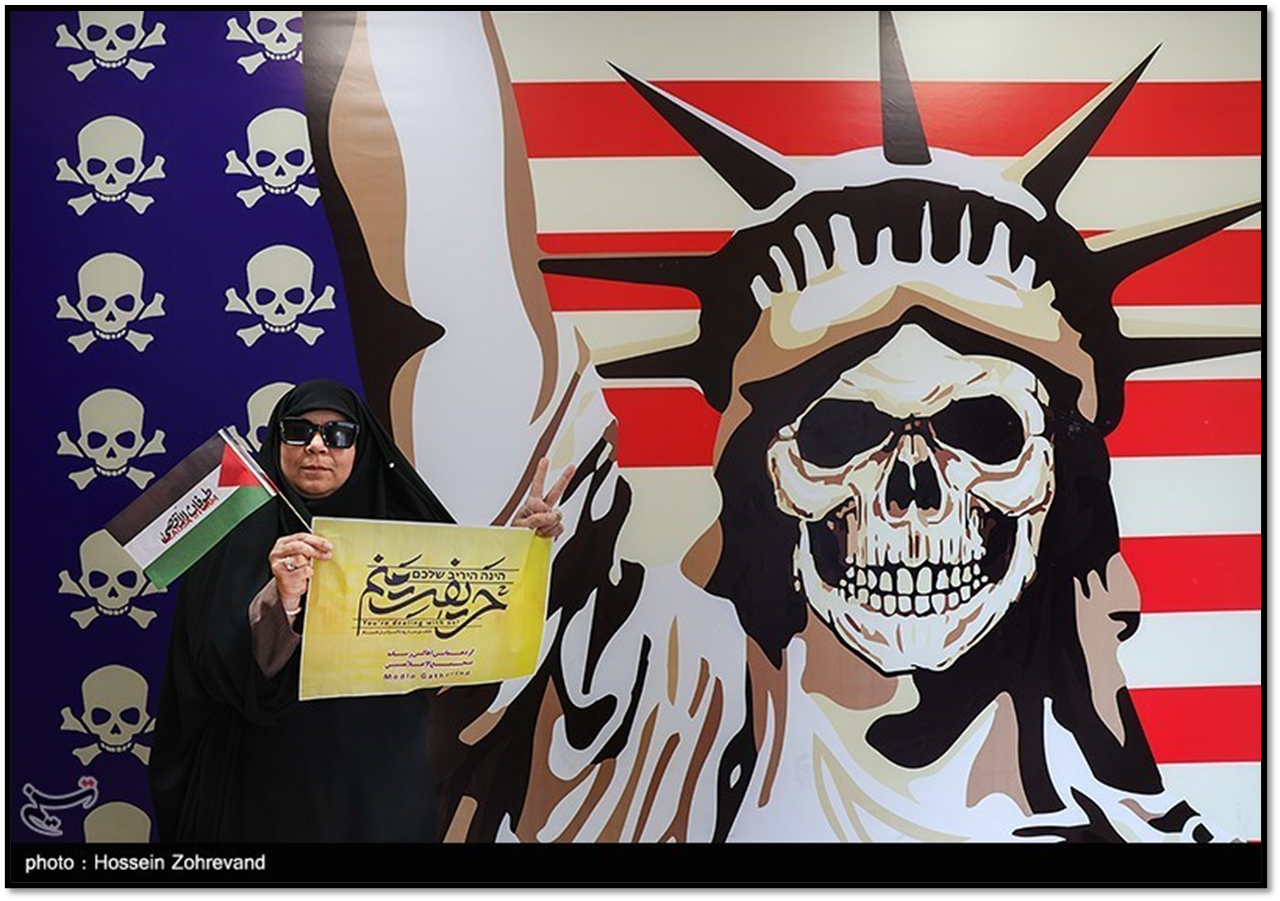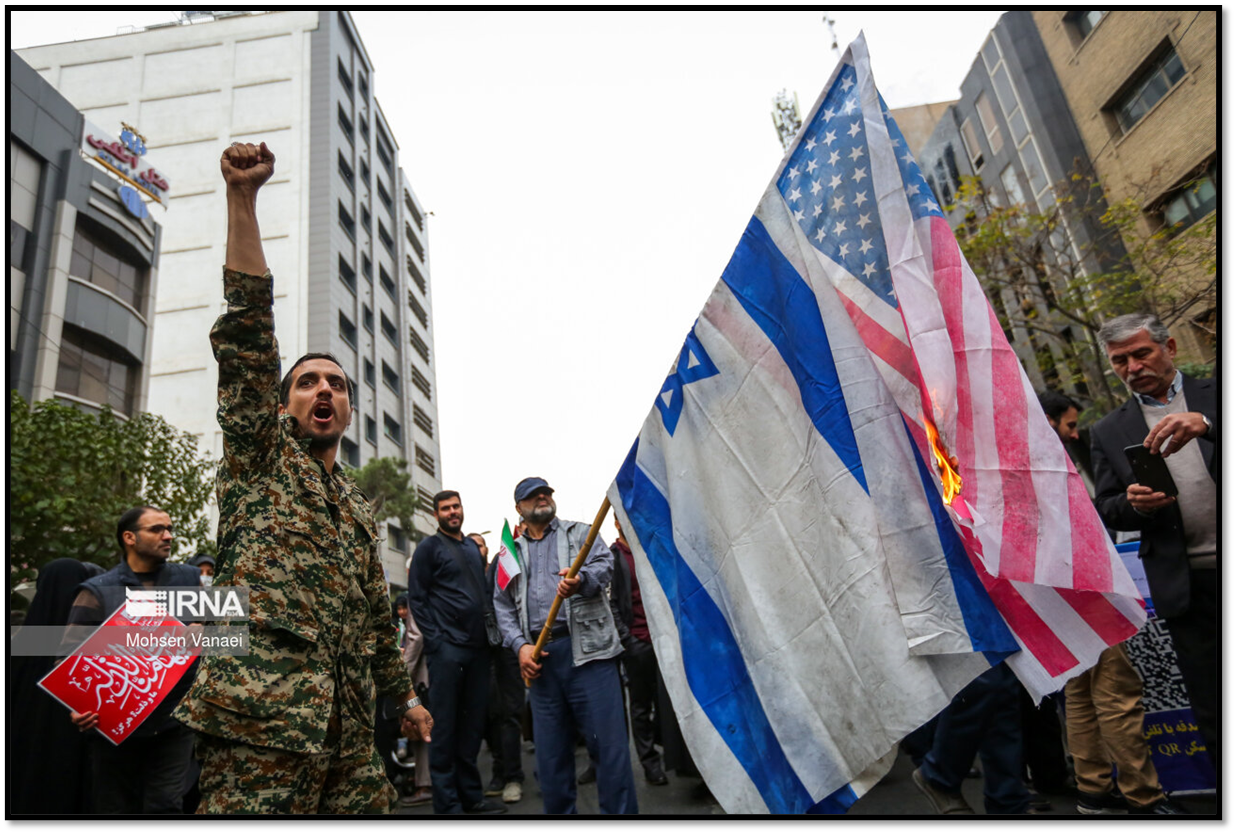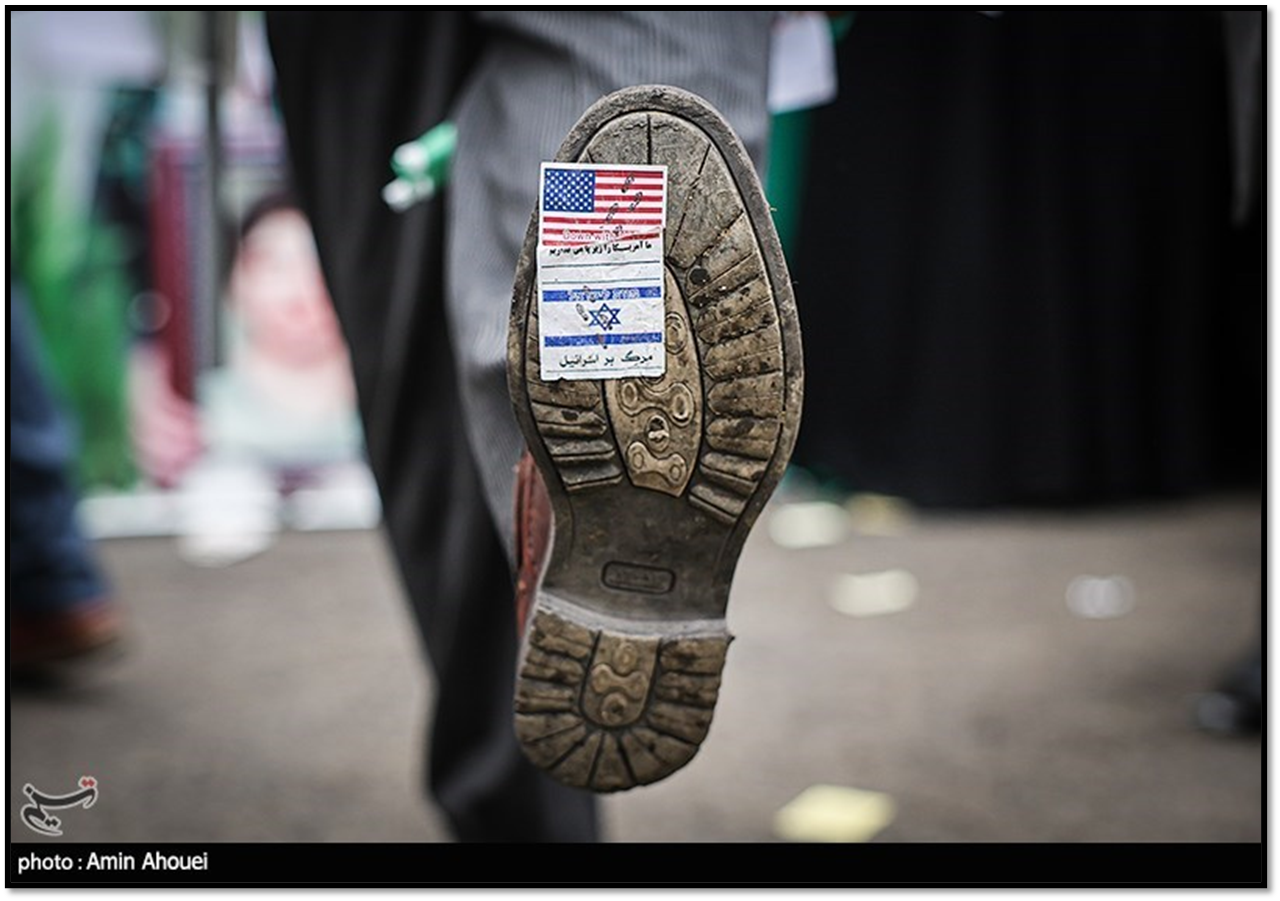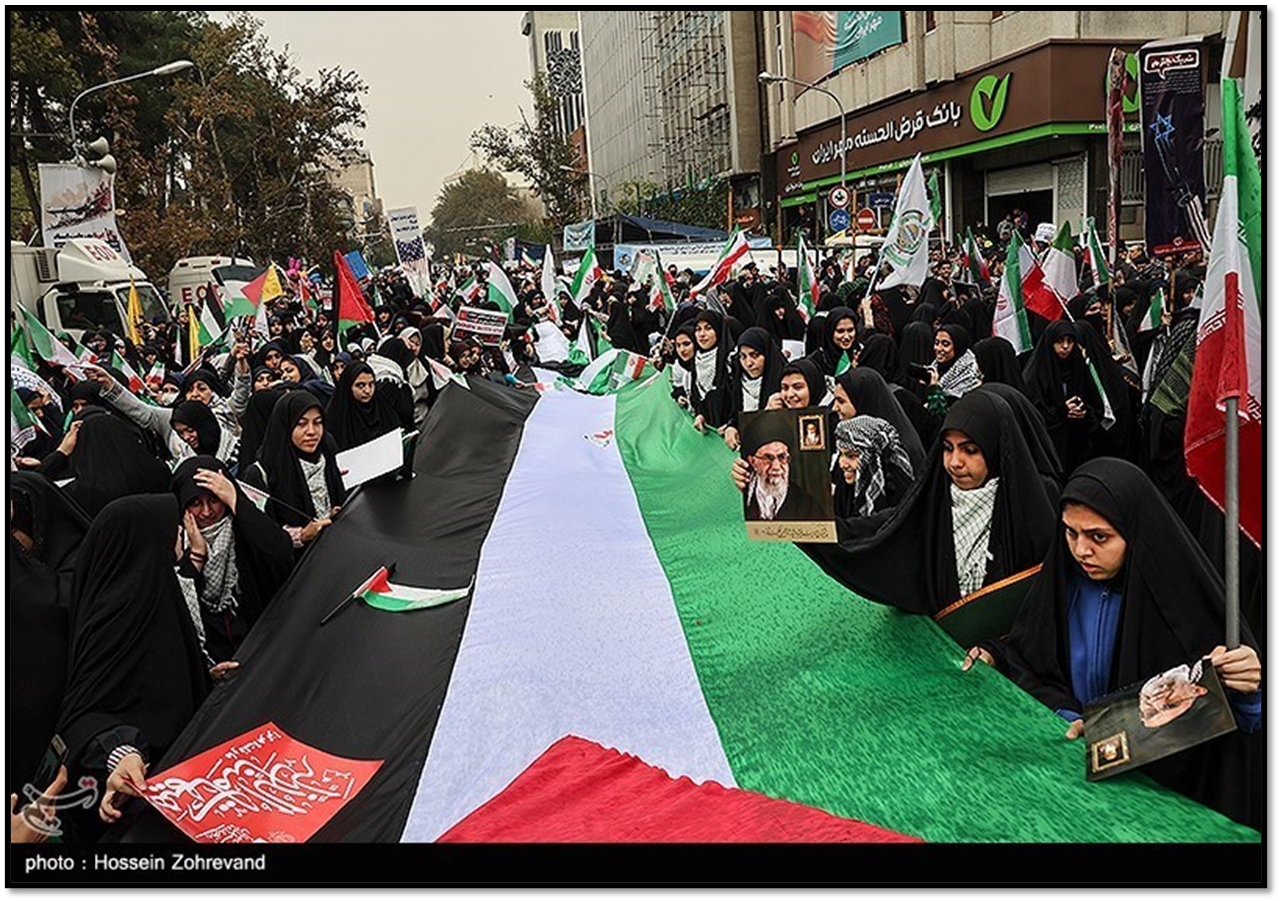
On Nov. 4, 2023, Iran held celebrations to mark the 44th anniversary of the seizure of the U.S. Embassy, when 52 American diplomats were held for 444 days. The takeover, which gripped world attention, ended a presidency and introduced the yellow ribbon as a symbol of American unity, was one of the most traumatic U.S. foreign policy crises of the 20th century.
Iran held demonstrations in front of the former embassy compound, which is now a museum dedicated to takeover, as well as in major cities nationwide. The annual commemoration differed in 2023 because it intersected with the war between Israel and Hamas in Gaza. After a parade through Tehran, protesters burned U.S. and Israeli flags and stamped on pictures of President Joe Biden and Israeli Prime Minister Benjamin Netanyahu.
Speaker of Parliament Mohammad Baqer Qalibaf used the commemoration to again condemn American arms and financial aid to Israel. “We consider the criminal U.S. a principal culprit in all these crimes” in Gaza, he told demonstrations in front of the sprawling U.S. compound. The United States was the first nation to recognize Israel in 1948 and has since been its biggest benefactor and ally.

The latest Middle East war indirectly pits Washington against Iran because each country has been the primary source of economic and military support for the two adversaries in the Gaza conflict. Iran has been pivotal in supporting and arming Hamas since shortly after it was formed in 1987. It is part of the so-called “Axis of Resistance” of Iranian-backed militias across the Middle East.
The United States, in turn, used the anniversary to express outrage over Iran’s long history of taking American and other foreign hostages since 1979. Iran’s allies, including Hamas as well as Hezbollah in Lebanon, have also seized dozens of foreigners to leverage for political or financial gain. Hamas abducted more than 200 Israelis and foreigners during its assault on Israel on Oct. 7, 2023.
“Unfortunately, the Iranian regime has a long history of unjustly detaining foreign nationals that continues today,” State Department spokesman Matthew Miller said on the anniversary. He noted that Iran had finally released five Americans, who had been held for as long as eight years, in a prisoner swap in September.
“We condemn Iran’s continued detention of foreign citizens for use as bargaining chips,” he said. Washington also criticized Tehran support for Hamas and other terrorist groups “that engage in the abhorrent practice of hostage-taking.” Washington, Miller added, is working with allies to hold Iran accountable for past hostage seizures.

Since the Gaza war erupted, the United States has expressed growing concern about the conflict widening in ways that bring in other militias or nations, notably Iran. Washington blamed Iranian proxies for dozens of rocket and drone attacks on U.S. military personnel based in Iraq and Syria—who are part of the international coalition containing the spread of ISIS—during the first month of the war between Israel and Hamas. U.S. warships also shot down missiles fired by Iranian-backed Houthi rebels in Yemen that appeared aimed at Israel.
“The United States does not seek conflict with Iran,” Blinken told a U.N. Security Council crisis session on October 24. “We do not want this war to widen. But if Iran or its proxies attack US personnel anywhere, make no mistake: We will defend our people, we will defend our security, swiftly and decisively.”

